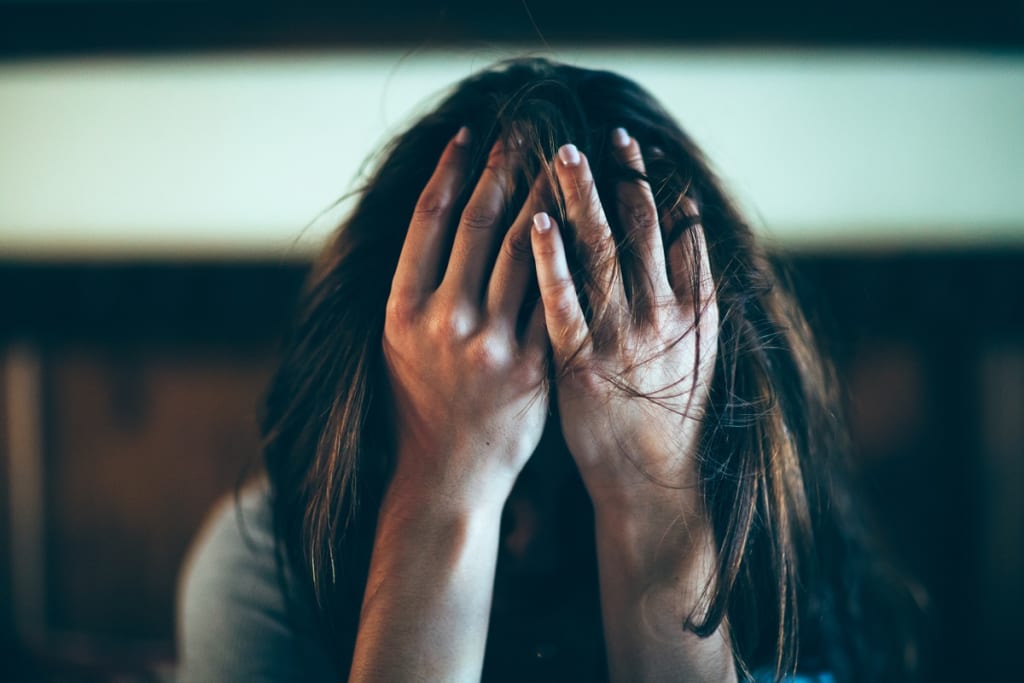
Anxiety is a common emotion and a natural response to stress or perceived threats. It is often characterized by feelings of worry, fear, nervousness, or unease about future events or situations. While experiencing some level of anxiety is normal and can even be helpful in certain situations, such as alerting you to potential dangers, excessive or chronic anxiety can be problematic and interfere with daily life.
Anxiety can manifest in both physical and psychological symptoms, which may include:
- Physical symptoms: Rapid heartbeat, sweating, trembling or shaking, shortness of breath, muscle tension, headaches, dizziness, stomach upset, and fatigue.
- Psychological symptoms: Restlessness, racing thoughts, difficulty concentrating, irritability, feeling on edge or constantly alert, trouble sleeping, and a sense of impending doom.
There are different types of anxiety disorders, each with specific characteristics, such as generalized anxiety disorder (GAD), panic disorder, social anxiety disorder (social phobia), specific phobias, and others. These disorders involve persistent and excessive anxiety that can significantly impact a person's ability to function in daily life.
It's important to note that anxiety is a common human experience, and occasional bouts of anxiety are normal. However, when anxiety becomes overwhelming, chronic, or starts to interfere with daily activities, it may be beneficial to seek support from a mental health professional to explore coping strategies and potential treatment options.
Dealing with anxiety can be challenging, but there are various strategies and techniques that can help you manage it effectively. Here are some suggestions to cope with anxiety:
- Breathing exercises: Practice deep breathing or diaphragmatic breathing to calm your nervous system. Breathe in slowly through your nose, hold for a few seconds, and then exhale slowly through your mouth. This can help reduce the physical symptoms of anxiety.
- Progressive muscle relaxation: Tense and then relax different muscle groups in your body to release physical tension and promote relaxation.
- Mindfulness and meditation: Engage in mindfulness practices or meditation to focus on the present moment and let go of racing or intrusive thoughts.
- Identify triggers: Try to identify the situations or thoughts that trigger your anxiety. Understanding your triggers can help you develop strategies to cope with them better.
- Challenge negative thoughts: Learn to challenge and reframe negative thoughts that fuel your anxiety. Replace them with more balanced and positive alternatives.
- Limit caffeine and alcohol: Reduce or avoid consumption of stimulants like caffeine and alcohol, as they can exacerbate feelings of anxiety.
- Regular exercise: Engaging in physical activity can help reduce anxiety by releasing endorphins, which are natural mood lifters.
- Get enough sleep: Ensure you are getting adequate sleep, as lack of sleep can worsen anxiety symptoms.
- Seek support: Talk to someone you trust about your anxiety, such as a friend, family member, or therapist. Sharing your feelings can be a great relief and may provide you with valuable insights.
- Create a routine: Establishing a daily routine can provide a sense of stability and control, which can be beneficial for managing anxiety.
- Avoid excessive media consumption: Limit exposure to distressing news or social media that may trigger or worsen your anxiety.
- Set realistic goals: Break down tasks into smaller, achievable steps to prevent feeling overwhelmed.
- Practice self-compassion: Be kind to yourself and remember that it's okay to experience anxiety. Avoid self-criticism and treat yourself with the same understanding and care you would offer to a friend.
- Consider professional help: If your anxiety significantly interferes with your daily life and self-help strategies don't seem to be enough, consider seeking help from a mental health professional, such as a therapist or counselor.
Remember that everyone's journey with anxiety is unique, so it might take some time to find the strategies that work best for you. Be patient with yourself and be willing to adapt your coping techniques as needed.






Comments
There are no comments for this story
Be the first to respond and start the conversation.